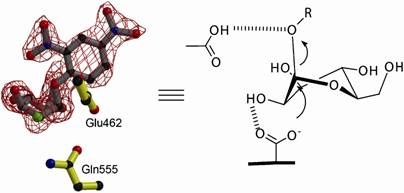DegussaHeadwaters building demonstration plant for direct synthesis of hydrogen peroxide
Advertisement
DegussaHeadwaters, a joint venture of Degussa AG, Dusseldorf, Germany, and Headwaters, Inc., South Jordan, Utah, USA, is building a demonstration plant for the direct synthesis of hydrogen peroxide (DSHP) in Hanau-Wolfgang, Germany. The company is currently developing a completely new method of synthesizing hydrogen peroxide for direct use as an oxidant in chemical processes. It is planning to build, own and operate DSHP plants for "over-the-fence" supply to chemical producers around the world.
The initial phase of activity by DegussaHeadwaters was the construction and operation of a DSHP pilot plant. The pilot plant has successfully operated since the beginning of this year leading to the next step in commercial development, construction of a DSHP demonstration plant.
The DSHP demonstration plant is scheduled to come on stream in the second quarter of 2006 and will be able to produce several thousand metric tons per year of hydrogen peroxide (H2O2) in methanol. Dr. Thomas Haas, general manager of DegussaHeadwaters, says: "Development of the DSHP process is proceeding on schedule so the technology should be available commercially for any required capacity level from 2007." H2O2 produced by the DSHP process is expected to be used as a cost effective raw material in the production of bulk chemicals such as propylene oxide (PO), a raw material for polyurethanes.
The DSHP process uses a nanocatalyst developed by Headwaters to react hydrogen (H2) and oxygen (O2) to form hydrogen peroxide. Headwaters' expertise in catalysis, combined with Degussa's position as one of the world's largest producers of hydrogen peroxide, makes this an ideal team to develop DSHP. DegussaHeadwaters also draws on experience gained in the development of the Degussa/Uhde process for the production of propylene oxide from H2O2 (HPPO).
The construction and start-up of the DSHP demonstration plant is the next major milestone in the development of this technology following the pilot stage. With the fundamental chemistry already confirmed, the demonstration plant will be used to test and optimize the parameters for large-scale production. Worldscale single train DSHP plants for PO are projected to have capacities of over 150,000 metric tons per year. Ray Balée, vice president and general manager Headwaters NanoKinetix, says: "Our NxCatTM nanocatalyst plays a central role in the performance of the DSHP process and the demonstration plant will provide further confirmation of this breakthrough technology's potential." Headwaters is currently increasing production capacity to ensure supply of the nanocatalyst in commercial quantities.
José Berges, vice president and general manager of New Technologies in Degussa's Active Oxygens Business Line, says: "Degussa sees very good market prospects for the new direct synthesis H2O2 from the DegussaHeadwaters joint venture." He is confident that it will be the oxidant of choice for chemical synthesis. Leading propylene oxide producers have already expressed considerable interest in using the new hydrogen peroxide to manufacture PO from propylene and hydrogen peroxide using the HPPO process. Other possible applications include chemical synthesis of caprolactam, phenol and epichlorohydrin.
"The direct synthesis route will be a very cost-effective method of producing H2O2 as an intermediate for chemical synthesis," explains Berges. Haas adds: "The DSHP process can be used directly in the production of propylene oxide in the HPPO process. This has already been demonstrated at our pilot plants for both DSHP and HPPO in Hanau-Wolfgang." Berges anticipates that investment costs for direct synthesis will be about one-third to one-half lower than for conventional technology. While Degussa itself will not produce propylene oxide commercially, it believes that the new H2O2 produced by the DegussaHeadwaters DSHP method coupled with the Degussa/Uhde PO process (HPPO) will offer propylene oxide producers a far less expensive production route.
Other news from the department manufacturing
Most read news
More news from our other portals
See the theme worlds for related content
Topic world Synthesis
Chemical synthesis is at the heart of modern chemistry and enables the targeted production of molecules with specific properties. By combining starting materials in defined reaction conditions, chemists can create a wide range of compounds, from simple molecules to complex active ingredients.

Topic world Synthesis
Chemical synthesis is at the heart of modern chemistry and enables the targeted production of molecules with specific properties. By combining starting materials in defined reaction conditions, chemists can create a wide range of compounds, from simple molecules to complex active ingredients.





























































